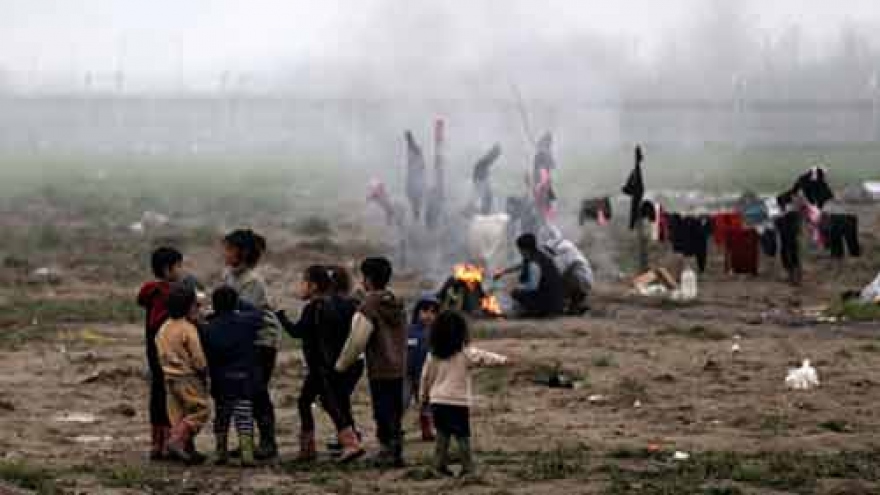Hundreds of migrants and refugees on the island of Chios tore through a razor wire fence surrounding their holding center and set off for the port in protest against planned deportation, police said. Police did not immediately intervene.
Clashes broke out at the site late on March 31, during which windows were smashed and 10 people were injured lightly, a police official said. Some 300 women and children broke out of the camp on April 1 carrying their belongings.
"They say that they don’t want to go back to Turkey and that they are afraid for their safety after yesterday's clashes between migrants in the hot spot," a police official said, using the EU term for registration centers that have become detention camps.
Although arrivals have slowed, more than 1,900 people have crossed from Turkey to Greece so far this week and a total of 5,622 have been registered since March 20.
The European Union plans to send hundreds of police and migration officers to Greece over the weekend to help carry out the first returns under a deal meant to end the uncontrolled influx of migrants.
More than a million people fleeing war and poverty in the Middle East and beyond have poured into Europe in the last year, most ending up in Germany, triggering a political backlash and pitting EU governments against each other.
However, the U.N. refugee agency and rights group Amnesty International raised objections, with Amnesty accusing Turkey of sending thousands of people trying to flee Syria back into the war-racked country in recent months.
"In their desperation to seal their borders, EU leaders have wilfully ignored the simplest of facts: Turkey is not a safe country for Syrian refugees and is getting less safe by the day," said John Dalhuisen, Amnesty International's director for Europe and Central Asia.
The European Commission said it was investigating the Amnesty charge and would raise the issue with the Turkish authorities, who had promised to apply the principle of non-refoulement under the Brussels pact.
